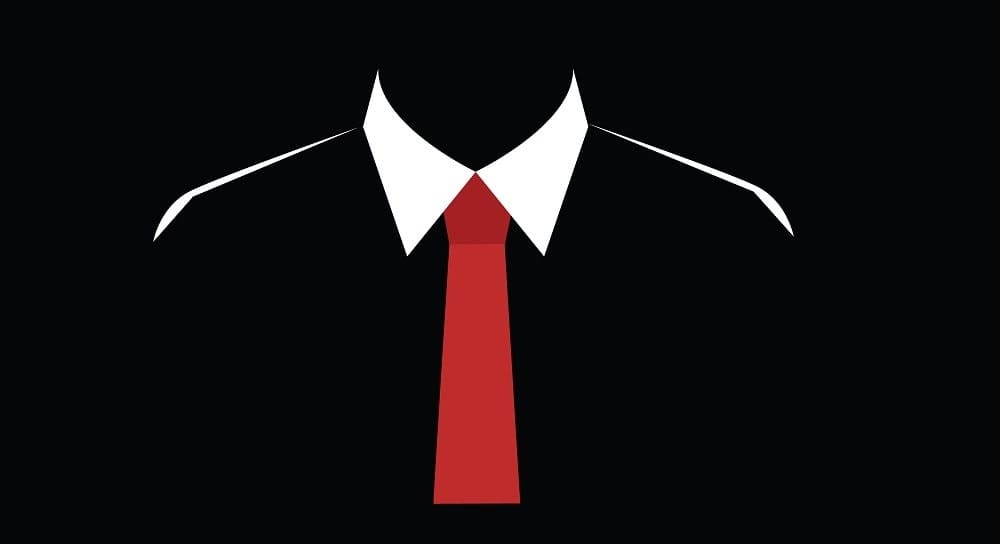Mafia groups are taking advantage of the COVID-19 crisis to acquire bankrupt entities for their nefarious purposes. Pideeco’s Stefano Siggia analyzes how the Mafia is gaining from the pandemic, their methods of infiltrating failing companies and how they are carrying out their schemes in Italy and the rest of Europe.
The COVID-19 crisis has wreaked havoc on businesses across the world, from mom-and-pop stores to larger operations, but where crisis and challenges lie, opportunities arise plentiful. Criminal organizations around the globe are moving fast to find ways to profit from the pandemic, and one such group that has been making the rounds lately is none other than the Mafia.
The term “Mafia” is a general catch-all used to describe four distinct criminal associations that have been operating in Italy since the late 19th century. These include the Sicilian Cosa Nostra, the Neapolitan Camorra, the Apulian Sacra Corona Unita and the Calabrian ’Ndrangheta – the richest and most international of the four.[1]
Police checks and strict national lockdowns that have persisted throughout 2020 have put a stranglehold on the Mafia’s main sources of income, which include extortion, prostitution and narcotraffic, amongst other illicit revenues.[2] Drug trafficking is estimated to earn the criminal organizations over €30 billion a year.[3]
In need of new avenues for profit, the Mafia have turned toward acquiring businesses on the brink of failure due to COVID-19, posing themselves as a helping hand toward the poor while taking control of their enterprises to generate ill-gotten money. Cash-heavy businesses such as restaurants and bars have always been attractive to the Mafia, but Dr. Anna Sergi, a senior lecturer in criminology from the University of Sussex, believes that when the emergency ends, “the criminal associations could have polluted the economy, controlling companies previously not infiltrated.”[4]
Dr. Anna Sergi is not alone. Other experts have shared her fears, believing that the Mafia will have a dominant hand on a number of industries and geographical areas both in Italy and in the rest of Europe.
Italy’s Sinking Ship
In 2020, Italy has been one of the worst hit European nations in regard to the pandemic, and also one of the first hit. The initial lockdowns that would create a ripple effect throughout the rest of Italy and beyond were imposed on February 21, before expanding to a full national quarantine on March 9. A series of subsequent lockdowns throughout the rest of the year would shut down entire sections of the economy to safeguard the population from infection and the collapse of the health system.
The needed national closure resulted in an economic disaster. According to Confcommercio, the Italian confederation of enterprises, more than 390,000 entities shut their doors due to COVID-19 in Italy in 2020. The worst hit sectors have been travel, restaurants and bars and transportation. Another 200,000 independent workers have also gone bankrupt due to the pandemic.[5]
The dramatic increase in poverty has pushed the government to issue the distribution of €400 million in shopping vouchers, and the year also saw an increase of 30 percent in food aid from charity organizations. Banks have also begun to lend less money to small and medium-sized enterprises.[6]
Mafia groups were quick to enact their schemes. By March they had already begun distributing food baskets to the families that faced grave financial difficulties – a strategy to recruit possible business deals and gain social consensus among the population.[7]
With the prospect of bankruptcy and without the aid of banks, businesses have turned to the criminal underworld to stay afloat. Mafia organizations have begun to acquire the failing entities, meeting their need for short-term financing through fresh, dirty money, which the companies would then launder into clean capital.[8]
Last November, a politician was arrested for laundering Mafia money through a series of ’Ndrangheta-controlled pharmacies.[9] However, this was only a drop of water in a much larger sea. Since the beginning of the pandemic, the Italian government has issued 1,600 anti-Mafia bans – administrative measures meant to blacklist entities from bidding for public contracts – an increase of 25 percent compared to 2019.[10]
A Favor You Can’t Refuse
Mafia groups take possession of bankrupt or near-bankrupt entities through loans and threats. They tendentially lend money to failing companies at exorbitant rates, at times as high as 500 percent, knowing well that the company owners will not be able to pay back the sum.[11]
The owners will gradually be pressured to repay the money, escalating into receiving threats, incessant phone calls and personal visits.[12] The organization will then acquire the company and ask the owner to hire someone within the criminal organization – a favor that they “can’t refuse” – who will then take charge of the entity and alter its structure and market to accommodate the purpose of the criminal organization. The original owner is transformed into a front man, or a prestanome, used to hide the true beneficial owners from banks and insurance companies. If they protest, asserting that the company is theirs, they will receive a clear answer – “not anymore.”[13]
The company will then be transformed into a conduit for laundering the Mafia group’s dirty money while they pocket any revenues the entity might generate.
A European Problem
The diffusion of Mafia organizations in COVID-distraught entities is not an exclusive Italian problem, but a European one. It is estimated that the criminal organizations generate around €100 billion a year – a sum that is far too great to launder solely in Italy.[14] In fact, Mafia groups have already expanded beyond Italian borders, moving money in nations with lower vigilance, with less stringent anti-money laundering legislation and with less severe sanction regimes.[15]
In Germany, a tight-knit network of ’Ndrangheta families are suspected of running various restaurants and construction companies as a front to reinvest the proceeds from their cocaine traffic.[16] Mafia groups also have strong footholds in Spain, where their main field of business is hotels and tourism.[17] Recently, Slovakia has woken up to the reality of Mafia infiltrations in their country, when investigative journalist Jan Kuciak and his fiancée were brutally murdered following an investigation that linked powerful Slovakian political and business figures to Italian organized crime.[18]
Nations with weak or no anti-mafia legislation are favored by the Mafia groups. The Netherlands’ efforts in combatting crime through increased judicial cooperation with other countries cannot make up for the lack of awareness it has toward the Mafia, which is shown by how the ‘Ndrangheta has infiltrated its horticultural sector to conceal shipment of drugs. Germany, on the other hand, has no cash payment limits, which shows why the criminal organizations favor the restaurant sector in the country.[19] Nations with lax anti-corruption laws or tax havens are also preferred by the Mafia.
The dire economic consequences of the COVID-19 crisis have not just been felt in Italy, but have extended to all of Europe. France has seen around 30,000 companies go bankrupt in 2020 while close to one-fifth of all Spanish firms are currently at risk of insolvency.[20],[21] In Belgium, there’s fear that 10 percent of all entities will go out of business.[22]
Sergio Nazzaro, spokesman for the Italian Parliamentary Anti-Mafia Commission, believes that certain European countries seem to be “in denial” about the power Mafia groups have outside of Italy and the ease with which they could hinder economic recovery efforts post-pandemic. These denials stem from the fact that acknowledging the existence of such groups is seen as bad for business.[23] Such claims only aid the Mafia organizations to profit from the current crisis.
As Roberto Saviano, the Italian author of Gomorra and an expert in the Mafia, ironically asked in an interview, “Who might possibly buy up the tourist resorts on the Côte d’Azur or the Costa del Sol that have been destroyed by the 2020 tourism crisis?”[24]
An Evolving War
The Mafia has been able to survive since the mid-19th century because it constantly evolves. Its criminal organizations are capable of sensing business deals before they are defined by the market, they have knowledge of what will be needed in the future by individuals and business, and they are capable of offering such services efficiently and rapidly with no bureaucratic hindrance. They are some of the best structured entities in contemporary capitalism.[25]
While Italy wages war with anti-Mafia bans within their borders, the struggle has also spilled over to other European nations. In July of 2020, a transnational police operation coordinated by Europol led to the arrest of 46 Cosa Nostra and 12 ‘Ndrangheta branches across Europe on charges of extortion, corruption in public tenders and drug trafficking, amongst others. Interpol has also launched an offensive in creating the Cooperation Against ‘Ndrangheta, which brings together 11 countries to combine resources and knowledge to fight the organization.[26] But is it enough?
An economy that is on its knees is at the mercy of organized crime. When there is a lack of money and businesses risk bankruptcy, many are determined to have access to liquidity, no matter its origin. With the COVID-19 pandemic still far from over, and the percentage of poverty increasing each month, the Mafia will continue to find opportunities to expand their operations.
As Albert Einstein once stated, “in the middle of difficulty lies opportunity,” and that is something Mafia organizations have always known.
[1] Cecilia Anesi & Matteo Civillini, “Coronavirus has Only Made the Mafia Stronger,” Vice, July 15, 2020.
[2] Hanna Roberts & Jacopo Barigazzi, “Mafia Plots Post-Coronavirus Pounce,” Politico, April 7, 2020.
[3] Monica Pinna, “Italian Mafia Groups are Cashing in on COVID-19 by Exploiting the Social and Economic Crisis,” Euronews, July 10, 2020.
[4] Valentina Di Donato & Tim Lister, “The Mafia is Poised to Exploit Coronavirus, and Not Just in Italy,” CNN, April 19, 2020.
[5] Unknown, “Confcommercio, nel 2020 Oltre 300mila Imprese in Meno,” Ansa.it, December 28, 2020.
[6] Melissa Barra, “Faced with the COVID-19 Crisis, the Italian Mafia Sees Business Opportunities,” France24, May 2, 2020.
[7] Ibid.
[8] Ibid.
[9] Mark Lowen, “Italy’s Calabria has Two Pandemics: COVID and the Mafia,” BBC News, November 30, 2020.
[10] Celine Cornu, “’We Mustn’t Bow to Violence:’ Italy’s COVID-hit Businesses Battle to Resist Mafia,” The Local.it, October 23, 2020.
[11] Ibid.
[12] Ibid.
[13] Ibid.
[14] Janna Brancolini, “Italy Seeks to Keep COVID-19 Recovery Money out of Mafia Hands,” Los Angeles Times, July 24, 2020.
[15] Vincenzo Pinto, “The Mafia in the Time of the COVID-19 Crisis: a European Challenge,” Institut Montaigne, April 16, 2020.
[16] Ibid.
[17] Ibid.
[18] Ibid.
[19] Ibid.
[20] Mathieu Castagnet, “Crise du Coronavirus: Pourquoi n’y a-t-il pas davantage de faillites?” La Croix, December 21, 2020.
[21] Belén Carreño “Almost a Fifth of Spanish Firms in Danger of Insolvency, Bank of Spain says,” Reuters, December 1, 2020.
[22] Unknown, “Coronavirus: Almost 10% of Belgian Businesses Fear Imminent Bankruptcy,” The Brussels Times, November 22, 2020.
[23] Ibid.
[24] Ibid.
[25] Roberto Saviano, “Il Contagio Mafioso: così la criminalità sfrutta l’epidemia,” Repubblica, August 24, 2020.
[26] Ibid.



 Stefano Siggia is a senior consultant at
Stefano Siggia is a senior consultant at 






